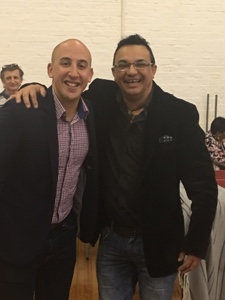Building strong literacy skills in Foundation Phase: insights drawn from academic article by #Elizabeth Pretorius
 |
| Grade R Learners at Steenberg a Primary School |
#ElizabethPretorius (UNISA) wrote a research article on a South African literacy intervention programme that she conducted at a Gauteng township school in 2010. I found this fascinating research article on #NicSpaull's blog. The link for the article, "Supporting transition or playing catch-up in Grade 4? Implications for standards in education and training." is on Nick's blog. Do pop in there and download the article.
I want to highlight FIVE key insights that I have gleaned from this research conducted by Elizabeth Pretorius.
1. Schools can make a difference if the classroom is a literacy hub.
- I like the realistic spin that schools can help to bridge the gap of children's literacy deficits IF we have a highly-focused, sustained literacy approach at the foundation level. Other research has showed this, but we don't really have a large body of research on intervention case studies like this in South African schools. This research shows warts and all of how the intervention design and focus had to be adapted because of the context at that school.
- This message of hope may inspire poor township schools to deepen their teaching of reading and writing at Foundation phase. There are also lessons for the Intersen phase and the need for an integrated curriculum management plan at schools. Schools may understand better now why their entire campus must become reading schools, including the teachers.
2. The coaching model of intervention makes more impact.
- A second takeaway is that here is more evidence to support why learners who struggle should receive tailored support in their classrooms. Support for learners should not be extracted from their peers and be given isolated sessions. This form of intervention has no real, measurable impact in the absence of an integrated reading-writing model in the respective classes and as a school-wide curriculum strategy.
- Intervention strategies put in place after Grade 3 have limited impact on learners' literacy proficiency. Children have to develop strong language and literacy skills in the Foundation Phase, else they are destined to struggle throughout their academic career. Trying to intervene later is a time-consuming, protracted, resource-intensive process that may produce negligible systems turnaround . The case study in this intervention programme is a good example of this. The intervention programme was effectively a year long.
- Another interesting feature of the intervention is that the researcher had to change her intervention approach. After failing to impact teachers' knowledge and classroom teaching practise by conducting regular workshops, she switched to a coaching model. The literacy coach was embedded at the school and worked alongside the educators in the classroom. Despite having better success and greater impact, Pretorius does confirm that the impact of the on-site, collaborative intervention was not as high as they had expected.
3. The gaps in teaching literacy at Foundation Phase.
- Elizabeth Pretorius highlights that foundational literacy skills acquired in Foundation Phase form the bedrock for the more demanding academic literacy skills that are required for learning from Grade 4 onwards. It is therefore critical that learners need to develop strong literacy skills so that they can cope with the transition to Grade 4.
- The challenge is that literacy skills are taught superficially. Besides teaching the decoding process where learners are taught to recognize words, there is not enough systematic teaching and practise of comprehension and reading skills.
- According to research, children learn to read by reading. Then, their reading skills are reinforced when practising when they do writing exercises based on the reading. Reading activities are thus the inputs. Real learning takes place when written exercises are given to reinforce the reading skills that are being taught.
- Pretorius talks about an 'oral orientation' where reading skills are taught and assessed predominantly in the absence of a dedicated, rigorous writing programme linked to reading. Most of the reading activities would focus on aloud reading, chorusing and listening activities. If these reading activities dominate the literacy teaching in the classroom, the children's oral proficiency is practised. Also, learners are merely learning the mechanics of reading rather than reading for meaning as well.
4. The benefits of mastering strong literacy skills for academic achievement.
- Children who have strong literacy skills will have a high level of word recognition skills that will enable them to recognize high frequency words automatically,quickly and accurately. When children reach this level of competence, they can use their energies to make meaning of the texts as they progress, rather than being hamstrung in basic decoding processes. It is this level of mastery that learners need to cope with the academic demands at Grade 4. At the higher grades, the emphasis is on reading to learn as opposed to learning to read.
5. Classroom Reading Culture is essential.
- Classrooms must have a well-stocked classroom library that all learners can access. Learners should read daily in class and be allowed to take books home every day.
- Teachers should reinforce that reading and writing are inseparable so that children acquire the writing habit as well. Teachers should establish this routine so that this process becomes automatic.
- Teachers should be enthusiastic readers themselves and model independent reading as a pleasurable, important activity.
- Teachers at Foundation level and at Grade 4 level should effectively be literacy specialists. If schools lack such capacity, the school leadership should explore appointing a literacy coach to support on-the-job training for the educators. Professional development programmes should also target such training to help teachers become more knowledgeable.
Did you find other parts of the research more informative and interesting? I'd love to hear your views.



Comments
Post a Comment